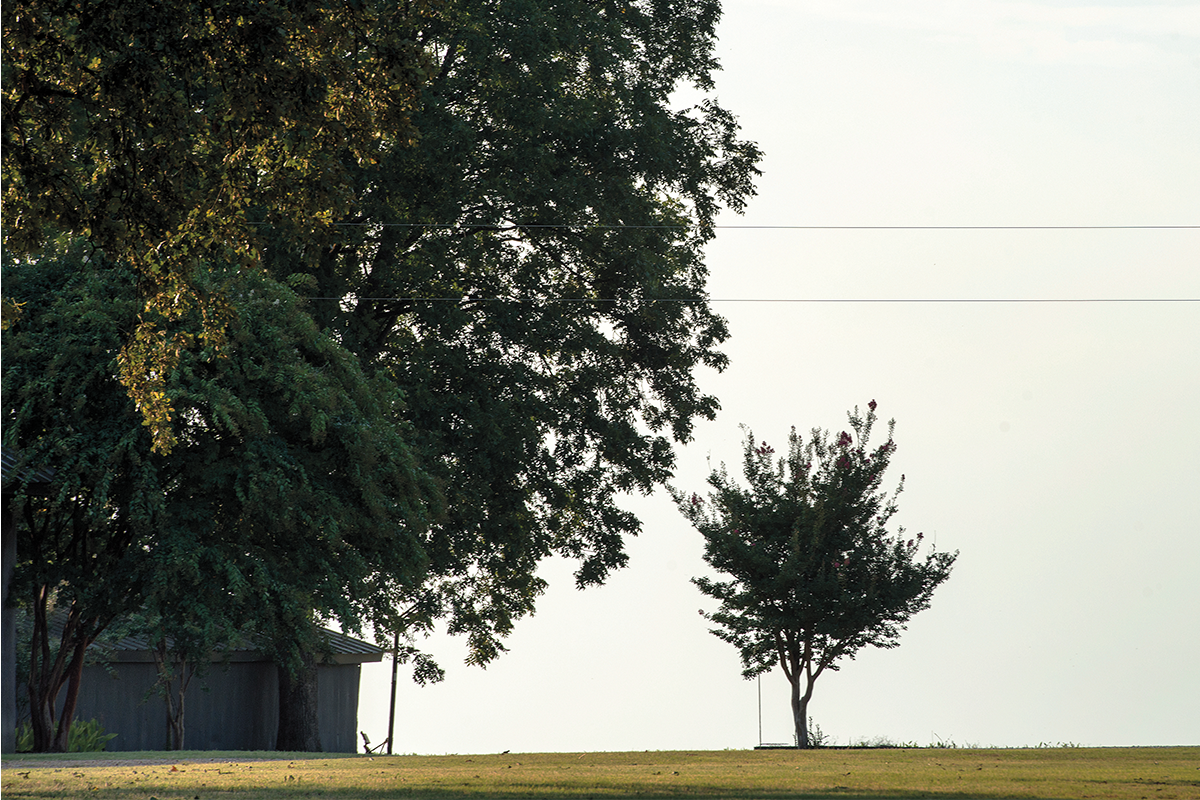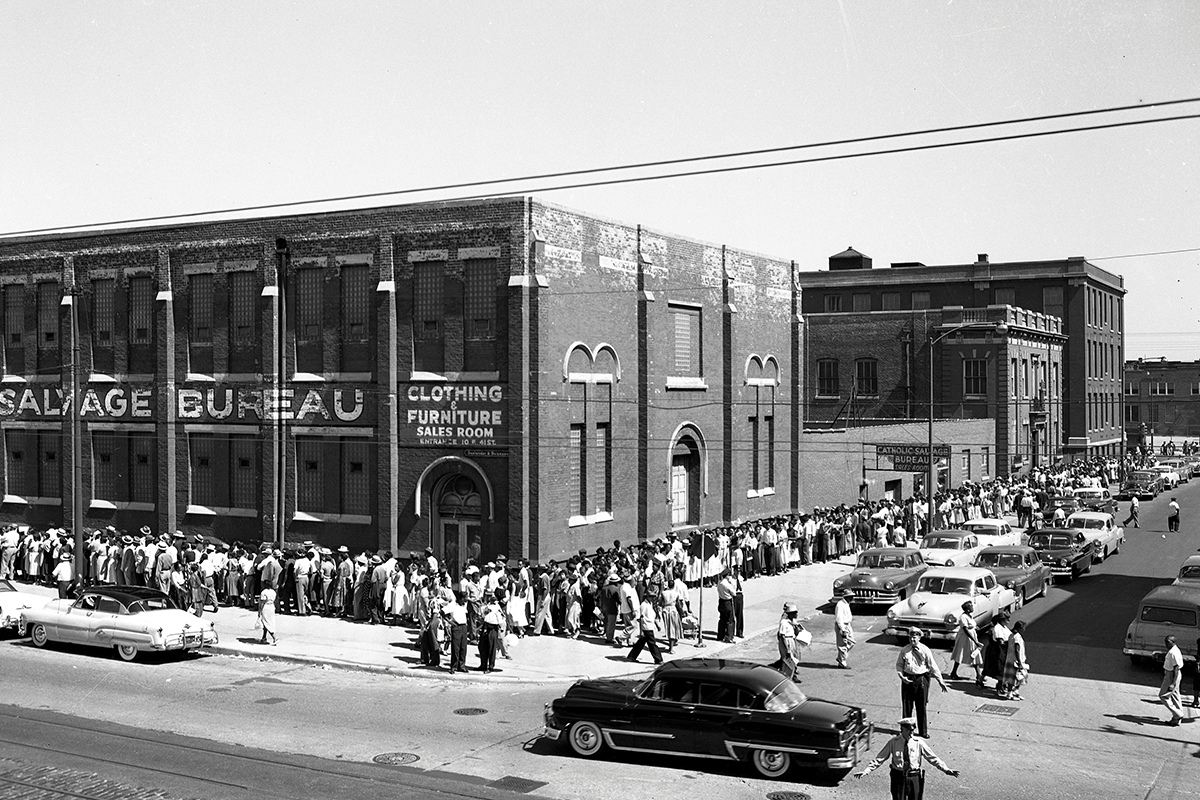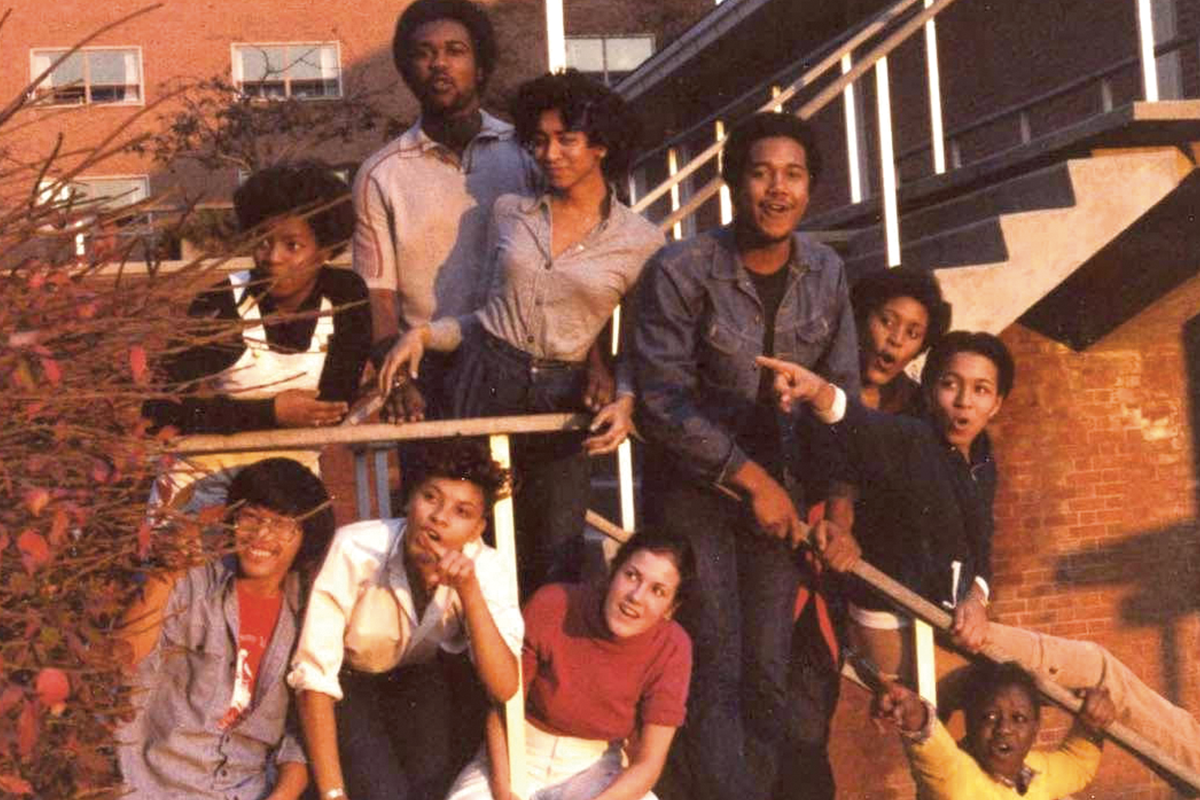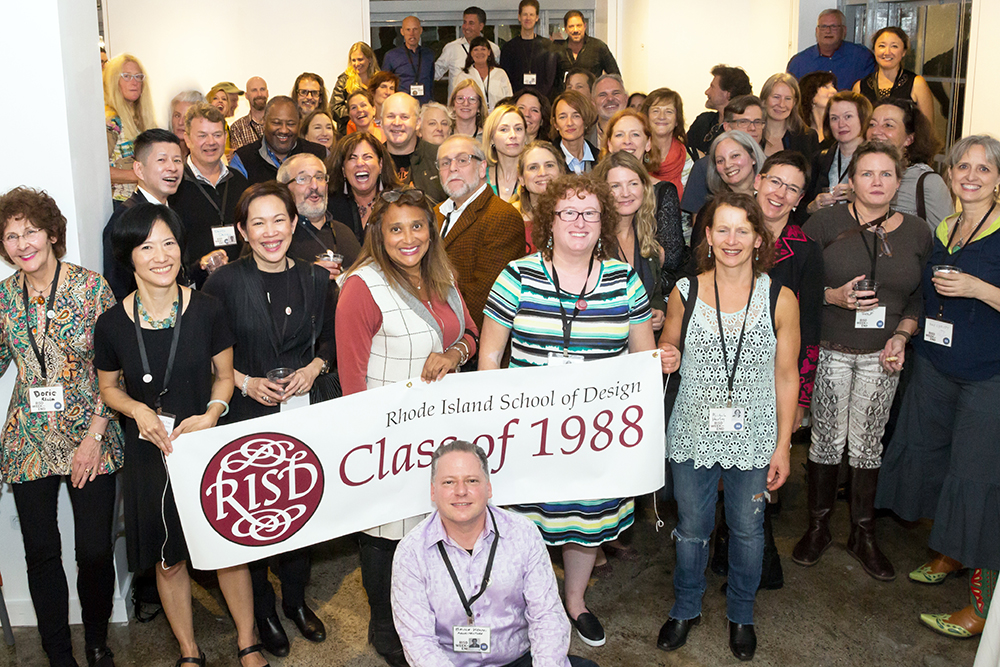
In This Season
As a designer and educator, Rene Payne strives to break down social and cultural barriers.
For Rene Payne 83 GD, nothing is an accident. She sees life not as a series of linear paths that intersect, but as a circle that bends and revolves in and out of seasons. Her work as an educator and a designer are not merely jobs to sustain a lifestyle, but callings through which she can create real change.
One of her latest projects through her multidisciplinary design agency, included by FAVOR, is a website and mobile application called The Emmett Till Memory Project, envisioned in response to the incessant vandalism that has plagued the site on the banks of the Tallahatchie River where the fourteen-year-old boy’s body was pulled from the water. The website and app will convey the depth and significance of Till’s story to a younger generation.
The call to action that Payne routinely answers comes directly from her parents, Sylvia Watkins and William Watkins Jr. At first glance, her mother and father don’t appear to be revolutionaries. Her mother stayed at home to raise Payne and her two sisters, and her father was in computer systems at Volkswagen America. And yet, in their dogged and persistent pursuit to provide the best education for their girls, they not only challenged social norms, but raised women who carried on their legacy by continuing to question and break down barriers.
“We were raised to pioneer; we were raised to be open to creating change,” Payne says.
Born in Englewood and raised in Teaneck, New Jersey, Payne witnessed her parents fight zoning laws for the right to give their girls an education that only one side of town had access to. Her father was active in the Urban League and a delegate for Dr. Martin Luther King Jr. He was invited to sit on the dais when King delivered the “I Have a Dream” speech. Payne remembers as a child not wanting her father to go, feeling something she couldn’t quite put her finger on then. He offered comfort by reminding her that everything he and their mom were doing was for Payne and her sisters. Her father was also integral in the desegregation of schools, and Teaneck was one of the first to desegregate, with the Payne family one of eleven families that were impacted.
Their struggles didn’t stop there. Her father’s job took them to Andover and then Franklin, Massachusetts, where Payne and her sisters were the only Black girls in the school system. Although she had been “othered” before, her experience in high school stays cemented in her brain as the first time she experienced racism. “It was hard. Art was my escape. My teacher John MacPhee, a RISD alum, drove me and four of my classmates every Saturday to RISD to take classes. That experience gave me a taste of what I wanted,” says Payne. “My parents never told me what I couldn’t become. Therefore, I believed what I could become.”

Being an undergrad at RISD came with its own set of challenges. Payne struggled with depression. She credits one of her professors, Mahler Ryder, for saving her. He was one of the few Black faculty at the time; sadly, he passed away at age 54 in 1992. “It was Professor Ryder who really helped me move through it and go forward. It was also my community, it was my people. And this year RISD asked me to chair the Black Alumni Reunion, and that feels like I’m coming full circle and understanding the importance of what my colleagues and people meant for me. Community, that’s what helped me outside of work,” she says.
In the decades after her graduation, Payne has established herself not only as an award-winning designer and leader—whose work has touched small community organizations and Fortune 500 companies both locally and overseas—but also as a pioneer, like her parents. She was often the only Black woman at the table in the advertising agencies she worked for, and she used her position to ensure other Black faces were seen. At one agency, she was put on the Fleet Bank account and cast a Black couple for the imagery depicting private banking. “I understood the impact that I had and that it was so important how images were depicted to break stereotypes,” she says.
Payne started her own agency, FAVOR, in 2004. She has served as a diversity fellow at RISD and currently teaches and advises in the graphic design department. She was inducted into the DesignxRI Hall of Fame and was awarded a Lifetime Achievement Award, the first African American designer to receive the prestigious award. She serves on the national advisory board of Studio 50/50, providing mentorship to Black entrepreneurs. In 2019, she began included by FAVOR to build on her foundation to create creative platforms that support social equity initiatives for a variety of companies. “‘Social equity initiatives’ is not a buzzword for me. It’s how I’ve always viewed the world,” she says.
The idea for included by FAVOR arose after Payne completed her diversity fellowship at RISD and was tapped by RISD to work on initiatives such as the Abled Differently exhibit, which shared the artwork and narratives of students, faculty, staff and alumni living with physical, mental, cognitive or chronic health disabilities as a means to generate dialogue about their experiences and perspectives. “The idea came to me that I would run a business that would impact social equity inclusion for the world,” she says.
For the past four years, she’s been focused on the Emmett Till Memory Project, working on it with the Emmett Till Interpretive Center and the Till family. Dr. Dave Tell, a professor at the University of Kansas and the Co-Director of the Institute for Digital Research in the Humanities, commissioned included by FAVOR to reimagine the Emmett Till Memory Project. For the past two decades Tell has been focused on the legacy of Till’s murder. As a longtime partner with the Till family and the Emmett Till Interpretive Center in Tallahatchie County, he has worked to develop resources such as apps and roadside markers that will help elucidate the story for generations to come. He also penned a book in 2019, titled Remembering Emmett Till. Along with Payne’s team of young designers, digital preservation experts, and support through RISD Strategic Partners, they have built an immersive and interactive storytelling platform designed to provoke deep and critical engagement with Till’s legacy.
“[Till’s death] was the catalyst of the Civil Rights Movement. I felt such a mantle to steward the project, to hold the legacy of Mamie Till-Mobley and so many who went before, to somehow bring healing and reconciliation and understanding,” Payne says. As part of the project, she has conducted oral histories with the Till family and taught a workshop at RISD during which the students traveled to Mississippi and visited the locations prominent in Till’s life.
The digital guide uses GPS technology to usher users, both virtually and in person, to the twenty-three historical sites in the Mississippi Delta, Chicago and Washington, DC, that are related to the legacy of Till-Mobley and to the life and murder of Till. As each location is visited, a piece of Till’s story unfolds through narratives, archival documents and photographs, encouraging visitors to question the different versions and to think critically about the story being told. The hope is to launch the website on July 25, Till’s birthday, with the app to follow.
Payne feels only gratitude for the opportunity she’s had to share Till’s legacy and shepherd the next generation of creatives to use their talents to shift the conversation and shape their reality. “I feel ex-ceedingly blessed for the types of things that I’ve been able to be connected to in my life. I still have the passion, not only for good design, but for how it impacts a broad spectrum of what’s happening in this world.”

Much of Payne’s work has been about honoring truths, preserving history and pushing forward. So it feels particularly fitting that Black RISD alumni from across the country will gather in Providence to attend the inaugural Black Alumni Reunion in May that she helped chair—an event that will own and celebrate the former students’ past and the work they did then to preserve their future now. She writes of the event, with help from other reunion advisors, “Without the resilience of those who came before us, we would not be here today. We are moving through time, rediscovering and projecting new possibilities for our Black alumni. We recognize the labor and discipline it takes to overcome the systematic structures that seek to limit our access and advancement. Owning our legacy preserves our future. This is our history to remember. Our time to redefine.”
Image: Seed Barn, Milam Plantation, the long-forgotten site where Emmett Till was murdered. On August 28, 2022 hundreds of townspeople attended the first ever commemorative ceremony at the barn.
Words: Abby Bielagus
The Emmett Till Memory Project was funded by:
The National Park Service’s African American Civil Rights Historic Preservation Fund
The Institute for Museum and Library Services
The Andrew W. Mellon Foundation
The University of Kansas
Rhode Island School of Design Office of Strategic Partnerships
The Hall Center for the Humanities at KU
The Emmett Till Interpretive Center



